Spring has sprung! Sunny days, picnics, cherry blossoms and an abundance of fun outdoor activities!
But sadly, for sufferers of hayfever, this is hardly the case.
Rather it is a season filled with sneezing, runny noses, itchy eyes, foggy headedness and fatigue. These unwanted and annoying symptoms prevent sufferers from being able to take full advantage of what the warmer weather brings.
Are you looking for a better approach to treating your hayfever this Spring?
Acupuncture can help! Chinese Medicine is very successful in helping to prevent and manage the symptoms of hayfever. Many over the counter and prescription drugs have debilitating side-effects and users may suffer a range of discomforts such as dry mouth and nose, drowsiness, nausea and poor immunity. In fact, studies have shown that concurrent acupuncture with the use of over the counter antihistamines can drastically reduce your reliance on antihistamines while improving your symptoms.
Chinese Medicine is a totally natural, pain-free and safe approach to dealing with hayfever.
What is hayfever?
Also called seasonal allergic rhinitis; hayfever is an over-reaction of our immune system to pollen in the air we breathe, as the flowers and trees awake from their winter slumber. The immune system mistakenly recognises the pollen as a foreign body that it must expel and consequentially sets off a cascade reaction where copious amounts of histamine are released.
Histamine causes the commonly seen symptoms of hayfever such as:
- Sneezing
- Itchy, watery eyes and itchy throat
- Runny and congested nose which may progress to sinusitis
- Headaches
- Fatigue, low motivation
Chinese Medicine treats this by:
Strengthening and regulating the hypersensitive immune system to prevent the attacks from happening;
Calming the histamine response and reducing inflammation.
At Ranges Integrative Health we use acupuncture and Chinese herbal medicines to treat hayfever.
Acupuncture is very safe and pain free, points commonly used are on the back, face, hands and feet. It is common for patients to feel relief immediately after the needles are inserted and treatments should be weekly. Herbal prescriptions are taken daily and come in two convenient forms to suit any budget:
- Herbal liquid extracts
- Tablets and capsules
A 2015 Systemic Review and Meta-Analysis: Acupuncture for the Treatment of Allergic Rhinitis
Over 2300 participants were studied and the acupuncture treatment group exerted significant improvement in sneezing, itchy/runny nose, and sinusitis. Blood tests showed reduced serum IgE (a marker of overactive histamine) and the participants reported an improvement in their general quality of life.
Put the SPRING back in your step, give Acupuncture a go this season!
By Dr Shirley O’Dwyer CMD
References:
- Sherman, Lisa. “Acupuncture reduces antihistamine use in hayfever sufferers.” The Journal of Chinese Medicine, no. 117, 2018, p. 74. Gale OneFile: Health and Medicine, Accessed 30 Sept. 2019.
- Feng, S., Han, M., Fan, Y., Yang, G., Liao, Z., Liao, W., & Li, H. (2015). Acupuncture for the Treatment of Allergic Rhinitis: A Systematic Review and Meta-Analysis. American Journal of Rhinology & Allergy, 29(1), 57–62. https://doi.org/10.2500/ajra.2015.29.4116

